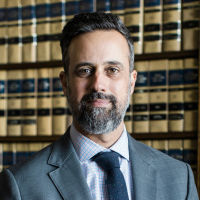Kenwood Felony Lawyer, California
Sponsored Law Firm
-
 x
x

Click For More Info:
-
Heather Wise Attorney at Law
700 College Ave Suite 1 Santa Rosa, CA 95404» view mapCriminal Defense Effective, Compassionate, & Tenacious
Ms. Wise is committed to supporting the safety and rights of our entire community. She is intent on providing compassionate and effective representation.
800-920-7321
Seth Morris
✓ VERIFIEDCriminal, Felony, Personal Injury
When the legal system fails you, you can’t leave yourself or your child at the mercy of a judge and 12 jurors. Seth Morris has saved his clients fro... (more)
Robert John Bratberg
Criminal, DUI-DWI, Felony, Misdemeanor
Status: In Good Standing Licensed: 43 Years
Roxanne Monique Mosley
Misdemeanor, Felony, DUI-DWI, Criminal
Status: In Good Standing Licensed: 22 Years
Patrick Ewing Clancy
Family Law, Felony, Criminal, Personal Injury
Status: In Good Standing Licensed: 50 Years
 Heather Wise Santa Rosa, CA
Heather Wise Santa Rosa, CA Practice AreasExpertise
Practice AreasExpertise

